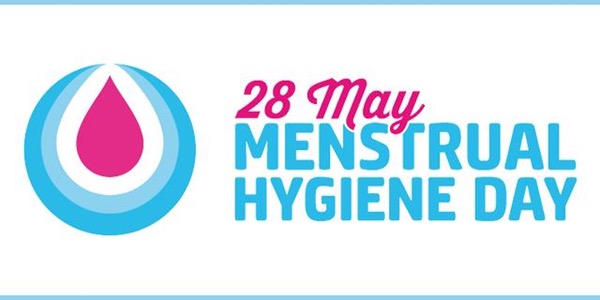
Every year, the global community marks May 28 as Menstrual Hygiene Day. The day brings together policymakers, civil society organisations, individuals, professionals, advocacy groups and others to raise awareness and share experience and knowledge about menstrual hygiene.
This year the theme fro Menstrual Hygiene day is ‘Education about Menstruation Changes Everything.’
Menstruation is a natural cycle and a normal part of a woman’s life. But this natural and normal cycle is often misunderstood many societies around the world. As a result, many menstruating women are mistreated under various pretexts. Religion, culture, traditions and customs are used as excuses to continue the ill-treatment of menstruating women.
There’s still a huge deal of shame around periods, despite the fact that they’re entirely natural and have been happening to people since the dawn of humanity.
In the Western world, this tends to boil down to incorrect period-based beliefs, like periods attract sharks, and periods are ‘gross’ or ‘dirty’.
In many religion mensuration is considered ungodly, they are prohibited from entering the kitchen and worship room, and forbidden from touching certain items. Also in certain places, menstruating women are not even allowed to stay inside their homes; they are banished to menstrual huts.
In India, 50% of girls have no knowledge at all of the menstruation before they hit puberty, meaning that many are terrified when their periods arrive.
In Ethiopia, two out of three girls do not receive any education that mentions periods.
The issue of periods and the impact they have on girls’ health and education has been neglected in many poorer countries. Research has found girls often aren’t given enough information about puberty: a study by menstrual health charity Femme International found that 75% of girls in Nairobi’s Mathare Valley slum had no idea what their period was before it arrived. Once girls do start menstruating, many have no access to reliable sanitary products.
Researchers in rural Kenya found that girls rely mostly on old rags, and in some cases, cotton wool, grass, socks, plastic and paper. In India, only 12% of women and girls use sanitary products. Many girls go to school dreading their period will stain their clothes, or those other students will smell an odour. In sub-Saharan Africa, one in 10 girls miss school during their period, according to a Unesco report.
And all around the world, girls are skipping school and dropping out of education entirely because of their periods, either because they have no clue how to deal with them, they believe there’s something wrong with them, or they can’t afford sanitary products.
Interestingly, the reason that May 28th was chosen is that May is the 5th month of the year – most women average to having their period for 5 days, and their cycle tends to be at 28 days. So in a way, 28th of May is especially symbolic!
This day ensures that awareness is increased regarding the access to menstrual hygiene that women have across the world. It is a basic human right that women worldwide are given the right materials to collect blood during this time, and that this material is able to be changed in total privacy.
The organisers behind this day also assert that correct washing facilities are given to women at this time and that young woman have given the correct educational materials regarding the changes which will occur in their bodies.
Menstruation is a biological fact, and this day aims to ensure that any kind of stigma suffered regarding it is stopped – and girls are taught that this is natural and nothing to be ashamed about.

Post Your Comments